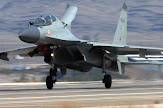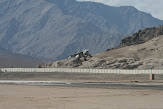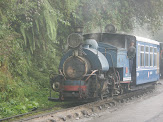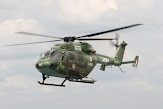For a long time I have been studying the political scenario in the Darjeeling Hills vis-à-vis the whole district and the state as a whole. Darjeeling Hills, the so called home, for the more than 1 crore Gorkhas of India does have a distinct parliamentary constituency by its name. And because of this, we have had our representatives elected to the parliament to the country. This has given us a trickle if not major political voice for our needs and grievances. Along with the lone Sikkim Parliamentary constituency and maybe one Parliamentary constituency from Assam, the entire Gorkha community in India is represented by these three key parliamentarians of Gorkha ethnicity.
Today as things unfold, only one constituency among the three which sent Gorkha parliamentarians may be able to send another Gorkha MP to the 15th Lok Sabha. That might be the Sikkim Parliamentary constituency. The outcomes for Tezpur parliamentary constituency are unsure as Mr. M.K. Subbha has been implicated in a foreigner issue. The other parliamentary constituency apart from Sikkim and Tezpur is the Darjeeling parliament constituency. This is the constituency which has been historically the only one which has sent a Gorkha MP to our Lok Sabha before the Nepali majority state of Sikkim was incorporated to the Indian Union. It has been the voice of the Gorkha people of West Bengal. A voice to assert their identity and a voice to air their grievances, which today in the colossal complex of West Bengal Legislative Assembly has been lost forever. But today as things stand even this constituency stands to lose this historic identity. The news flashing over major newspapers in Siliguri is Mr. Jibesh Sarkar as the potential CPI (M) candidate for the Darjeeling Parliament Constituency. What is peculiar about this news is that it is one of the few times in history when a Non-Gorkha was elected as the MP from Darjeeling. (The other times being when Mr. Inderjeet was elected at the insistence of Mr. Subash Ghising etc.) Moreover, every time we have gone to polls, all parties have respectively gone ahead and fielded a Nepali speaking (Gorkha) personality from their respective parties so much so that we had begun to think that the Darjeeling parliamentary constituency was completely Darjeeling’s. Today even after this announcement most of the people in Darjeeling Hills feels that it is a non-issue as the constituency is that of Darjeeling and only one chosen by the people of Darjeeling will be elected. The truth is far from it. At a close look at the demographic break up and population of the electorates of the respective assembly constituencies under Darjeeling PC will tell us other wise. I have listed below the assembly constituencies which fall under Darjeeling PC, and also as per the 2004 14th Lok Sabha Constituency figures, the number of electorates for the some of the constituencies
Darjeeling Parliamentary Constituency is made of the following assembly constituencies
1) Darjeeling Assembly Constituency
2) Kalimpong Assembly Constituency
3) Kurseong Assembly Constituency
4) Siliguri Assembly Constituency
5) Matigara-Naxalbari Assembly Constituency
6) Phansidewa Assembly Constituency
7) Chopra Assembly Constituency
The number of electorates for the three Darjeeling Hill constituencies in 2004 was as follows,
Darjeeling: 176498
Kurseong: 166846
Kalimpong: 150858
Total : 494202 ( All figures 2004; 2009 has revised figures )
Total no of electorates Darjeeling Parliamentary Constituency: 1249238 (2004 including Islampur)
The above figure gives a rough figure of 40:60 ratios among Hill electorates (Pre-dominantly Gorkhas) and Plains electorates (Pre-dominantly Bengalis). One thing to be considered is that Islampur Constituency which was a large constituency in terms of population has been removed from the Darjeeling PC this time.
Now considering the decadal growth rate of the Siliguri Sub-division which was 38.9% between 1991 – 2001, and a decadal growth rate of 8.8% for the three Hills Sub-divisions of Darjeeling between the same periods, we can roughly understand what the outcome would be to the ratio of electorates between the Hills and the plains. No doubt the exit of Islampur will impact favorably for the Hill electorates but considering the explosive population growth rate of the plains with respect to the hills, this effect can be offset and we can deduce the same population ratio for the Hill vs. plains electorates.
Now coming to the question of outcomes of 15th Lok Sabha elections for Darjeeling, the results can be seen that whoever the plain’s people chose will definitely come out as the clear winner of the outcome based on statistics alone. This is where quick thinking and strategy comes into picture. What do we do to protect the last vestige of our political power? What do we do so that our political power is retained intact so that our voices are heard, and we are able to make a favorable impact on the nation’s political structure to squeeze out a favorable consensus for ourselves?
As you know in the past the candidates standing up for election from this crucial constituency were of ethnic Nepali origin. As such, even if not Gorkhaland, other political grievances of the Gorkha population were expected to be fulfilled. That fact that all political parties cared for the sensitivities of the Gorkha populace whether from Hill or plains was evident. Even the CPI (M) had till then fielded a Gorkha face which helped them capture the Nepali vote bank from the plains. But this time CPI (M) has fielded an Ethnic Bengali candidate from the Darjeeling Parliamentary constituency clearly upsetting the delicate ethnic balance in the Darjeeling constituency. The move seems to be that of clearly marginalizing the Gorkha community, and totally wiping out the political power of the Gorkhas from the national scene. This seems to be a clever move on the part of CPI(M) to tap into the Gorkha-Bengali divide, and take the Gorkhaland protagonists head on, with the brute majority of the Siliguri, Matigara, Phansidewa and Chopra assembly constituency (whose electorates out number the remaining three Hill constituencies) to finish off the political prospects of the Gorkhas. This way they are completely marginalizing the Gorkha/Nepali population of Darjeeling politically, ones and for all. This is a clever move to stall any aspect of any political party from supporting the GL issue after the elections, thus ending the prospects of GL once and for all. If things go this way then there will be no other option left for the Gorkhas of Darjeeling to put whatever they have into GL agitation. Its like do or die. If GL agitation doesn’t bear fruit, then the people of Darjeeling will forever be marginalized politically in India by the ethnic Bengali majority of West Bengal.
Now the question is what can GJMM or any other party which represents the Gorkha interest do in order to protect the political rights of the Gorkha people? For that, the people of Darjeeling Hills will really have to ensure that every eligible living soul in Darjeeling votes, and votes for one party. Their votes should not be divided and there should be a mass consensus on the candidate to vote. It is the opinion of the author that only GJMM putting up its own candidate will be able to take on CPI(M) head on. As per 2004 elections, the ratio of electorates between the hills and the plains stood at 60:40 in favour of the plains. The plains votes can be divided by using the Congress to divide the votes between CPI(M) and them and perhaps other political parties. While the Hills should stand firmly behind one GJMM candidate. It is imperative that GJMM fields its candidate so that there is no division of votes in the hills, and absolute majority of the people vote for GJMM and GJMM only. That is the only possible way of electing the desired MP from Darjeeling Parliamentary constituency. Any other party supporting GL will not get the ethnic Bengali votes in the plains, so even if Congress or BJP support GL, their candidate will get no votes from among the Non-Gorkhas of the plains, on the other hand the Gorkhas residing in the plains will have to favour and caste their votes to the GJMM to ensure our political survival. Moreover the fielding of an Ethnic Bengali candidate will upset the Nepali sentiments in the plains, and this can be tapped in by GJMM. So its better to use multiple parties that don’t support GL to break the CPI(M) hold in the plains at the same time keeping a decisive edge by holding all the Hill electorates under one roof. This will ensure we divide the plains vote among leading National political parties based on ideology, and at the same time keeping our Hill’s votes under one political party based on ethnicity. This way we use the oldest trick in the book “Divide and Rule” to ensure the political survival for our race, so that our grievances and our demands are looked upon, and one day eventually our long cherished dream of Gorkhaland is met using non-violent and democratic means. Hope someone is listening!
Thursday, February 26, 2009
Politics of the 15th Lok Sabha elections and the implications on the People of Darjeeling
Posted by Anant Dhamala at 4:05 AM
Subscribe to:
Post Comments (Atom)










1 Comment:
A light shedding article. I didn't know about all this but now I do thanks to your post.
What you have analyzed and presented is accurate and very traceable. Kudos for that. And yes, you have analyzed the problem well too.
I am sure the GJMM party members have also thought of this and I believe (I want to!) that they are thinking on the same lines as your article says.
Let's just hope that the people of the hills don't fall prey to laziness and have already got their Voter ID's ready by now. And that they are ready to cast the die in favor of GL.
Jai Khukuri!
Post a Comment